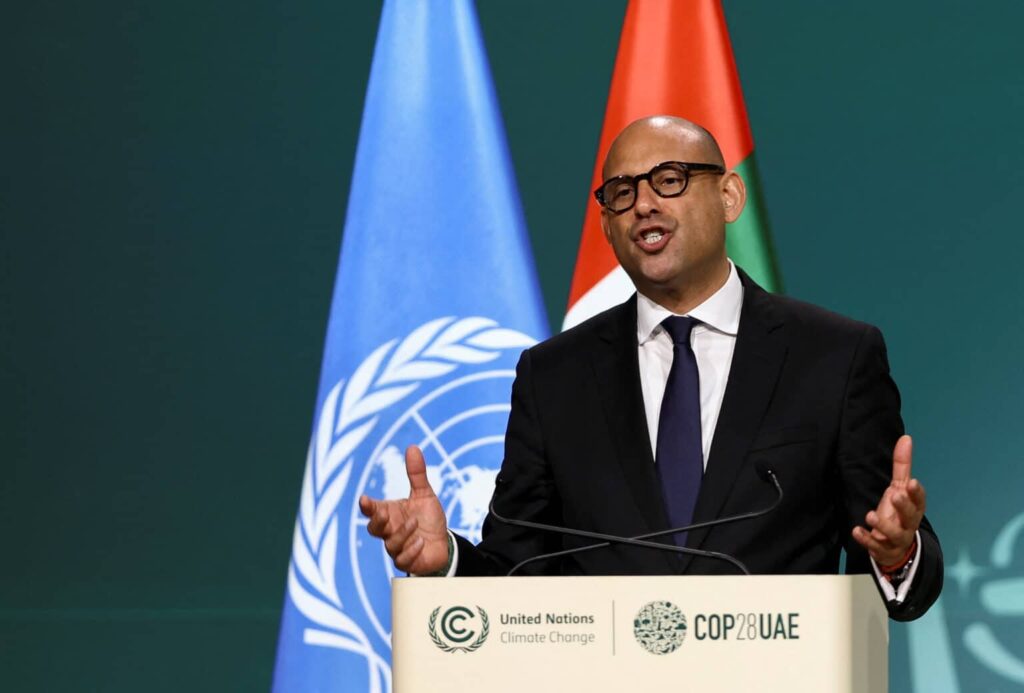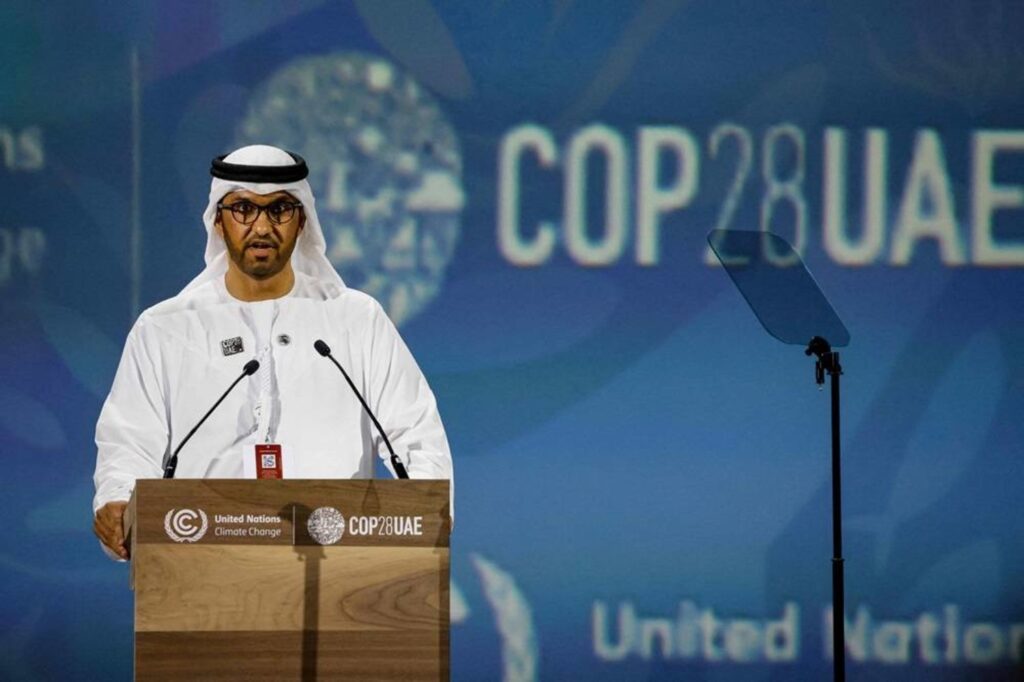Dar es Salaam. The 28th United Nations Framework Convention on Climate Change (UNFCCC – COP28) has officially begun, and Sultan Al Jaber, the chief executive of the Abu Dhabi National Oil Company, has taken the gavel from his predecessor, COP27 President Sameh Shoukry, to officially inaugurate the climate talks.
Sultan Al Jaber who is a United Arab Emirate (UAE) Special Envoy for Climate Change emphasized the need for a collective shift towards a sustainable path, one that accommodates all nations and sheds the burdens of the past.
Al Jaber painted a vivid picture of the potential for unprecedented progress, emphasizing that there is no other choice but to pursue innovative and unconventional solutions. He challenged the participants to work together, be flexible, find common ground, and come up with solutions that achieve consensus, all while keeping the 1.5-degree Celsius target firmly in sight.
Dr. Al Jaber highlighted the crucial role of financial resources in driving climate action. He acknowledged the persistent challenges in accessing, utilizing, and making climate finance affordable. As COP28 President, he pledged to champion initiatives that ensure the global south can pursue sustainable development without compromising climate goals.
Prioritizing Loss and Damage
Al Jaber underscored the importance of addressing loss and damage caused by climate change, particularly for vulnerable communities. He emphasized the need to fulfill the commitment of mobilizing $100 billion per year in climate finance for loss and damage.
Honoring the Memory of Loss and Damage Champion
Al Jaber paused to pay tribute to the late Sir David Attenborough, a renowned naturalist and loss and damage advocate. He expressed his personal appreciation for Attenborough’s wisdom and guidance in shifting the global focus towards adaptation efforts.
Centrality of Adaptation
Al Jaber emphasized the need to place adaptation at the heart of climate action. He advocated for bridging the financing gap for adaptation efforts and establishing a robust framework for a global adaptation goal.
Protecting Nature, Lives, and Livelihoods
Al Jaber urged participants to integrate nature, lives, and livelihoods into national adaptation plans. He emphasized the importance of addressing critical areas such as water for agriculture and health, highlighting the UAE’s plans to host a Climate Health Ministerial.
Maximizing Momentum on Mitigation
Al Jaber expressed his desire for COP28 to be a catalyst for accelerating mitigation efforts. He noted that more than 85 percent of the world’s economy still relies on fossil fuels. He advocated for scaling up renewable energy capacity and reaching critical mass in energy efficiency.
Transitioning Away from Coal and Methane
Al Jaber called for a rapid transition away from coal, encouraging countries to set net-zero methane emission targets as part of their next round of commitments. He emphasized the potential of methane reduction to make a significant impact in the shortest timeframe.
The UAE’s COP28 Presidency has made a bold choice to proactively engage with the oil and gas industry, recognizing their potential to play a significant role in addressing climate change. This engagement has resulted in several positive developments, including:
The UAE’s COP28 Presidency is demonstrating bold leadership in addressing climate change. By proactively engaging with the oil and gas industry, calling on all industries to act, emphasizing the importance of multilateralism, and urging collective action, the Presidency is working to create a more sustainable future for all.
The common ground, the way forward

UNFCCC Executive Secretary Simon Stiell noted, “… let’s be clear, this is a heavy responsibility. Today, we find ourselves in a rather different position in humanity’s climate action journey.”
“We must teach climate action to run. Because this has been the hottest year ever for humanity. So many records were broken. We are paying with people’s lives and livelihoods. We’re standing on a precipice. Facing the Global Stocktake and we’ve got two options,” he said.
He then mentions a lack of progress, tweaking best practices, encouraging people to do more ‘at some other point in time’ and sharing benefits across society.
According to him,he said they have to ensurure that everyone—women, indigenous peoples, and youth, in all their diversity—has equal opportunities to benefit from the transitions
Meanwhile, the secretary reminded that countries are expected to submit their first Biennial Transparency Reports in 2024, which will imply that it is impossible to hide the truth about personal development, and in the COP29 countries will decide on the new Finance Goal, which will help finance the change.
He says, “And consider this your official first warning that nations will need to submit updated Nationally Determined Contributions starting in 2025. This takes us to COP30, where every single commitment—on finance, adaptation, and mitigation—has to be in line with a 1.5-degree world.”
Further, he insisted on accountability, promising to commit the UNFCCC to tracking all announcements made and initiatives launched.
This story was produced with support from MESHA and IDRC Eastern and Southern Africa office.


